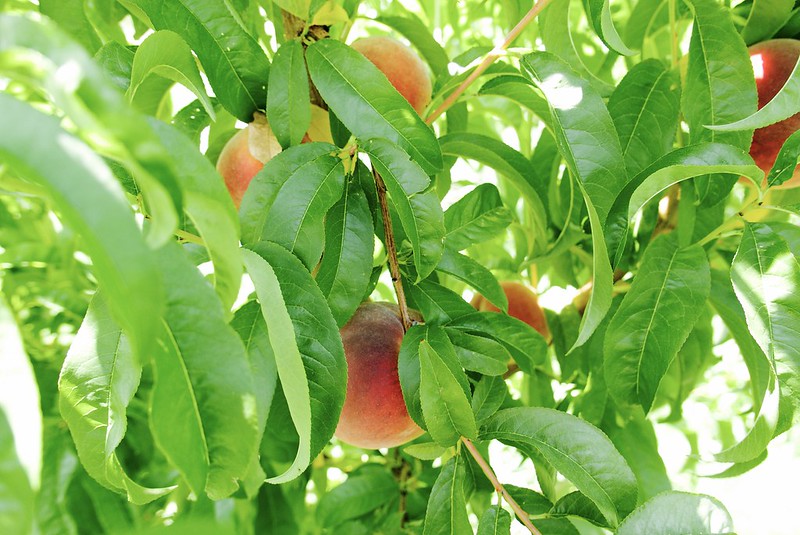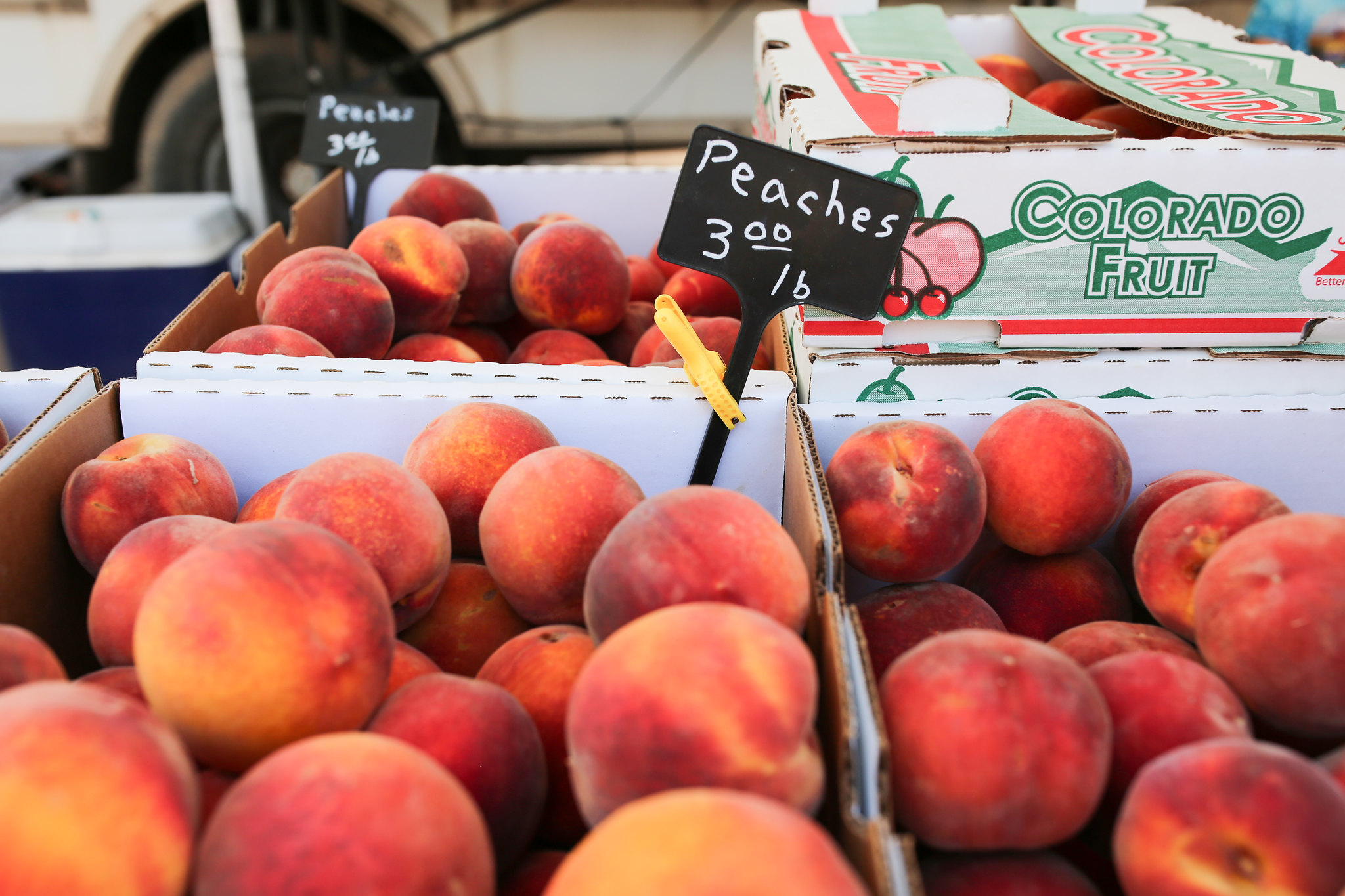In Colorado, residents often value knowing where their food originates and understand the importance of being connected to agriculture and food production. Our state’s love of Palisade peaches is a perfect example.
“There is something that underlies Palisade peaches. [They] offer a really close connection with agriculture, with our farmers and with other parts of the state. So much of peach sales are direct-to-consumer at farmers markets. It’s not just how delicious our peaches are,” said Colorado Commissioner of Agriculture Kate Greenberg.
However, this summer, as Front Range consumers search for and purchase Colorado’s iconic Palisade peaches — they will experience the impact of this year’s mid-April freeze on peach crops.
On the night of April 13 and through the morning of April 14, a hard freeze settled in the Western Slope, decimating this year’s Palisade peach crop and other fruit crops, including apples, pears, apricots, cherries and wine grapes. Temperatures dropped to the low to mid-20s, possibly as low as the mid-teens.
The late spring freeze damaged peach trees in the early petal fall stage when buds are exposed and vulnerable. Palisade growers report that there has not been an intense, prolonged freeze like this since 1999.
Each year, growers expect some level of freeze and frost-related loss — environmental setbacks occur when operating a high-risk business in the Western Slope. Unfortunately, typical solutions like warm air from wind machines and fans blowing in orchards did not increase temperatures enough to prevent major crop loss during this year’s freeze.
According to Mesa County’s Emergency Board for the Farm Service Agency (FSA), there is an estimated peach and fruit crop loss of at least 80% in Mesa County, which includes Palisade. In late April, Gov. Jared Polis and Commissioner Greenberg declared a Secretarial Disaster Declaration through the U.S. Department of Agriculture. The emergency declaration means growers can access federal support for crop loss, including assistance programs and repayment loans. It will also help determine the exact scope of crop loss.

Bruce Talbott is the farm manager at Talbott Farms in Palisade. Talbott noted that the freeze leads to a loss of revenue and impacts future access to H2-A seasonal farmworkers. “We spend years building crews of guys that know our [orchards,]” Talbott said. “They have to go elsewhere and we may not get them back for subsequent years.” Talbott Farms’ partner Charlie Talbott said he and the farm staff were able to find alternative employment opportunities for farmworkers.
“The third issue involves our marketing channels,” Talbott said. “Any time that there is a disruption in who we supply, it may be harder to get those people back next year.”
Still, there is hope for finding Palisade peaches this summer. Charlie Talbott noted that some orchards and peach varieties at Talbott Farms will produce plentiful fruit. “We will have abundant fruit here in the [Western Slope] for fruit markets and for tourists that come through. That is typically less than 1% of our ultimate crop destination,” Talbott said. “Our commercial presence out there in the trade is what will be significantly curtailed.” Bruce and Charlie Talbott remain optimistic about next summer’s crop.
Commissioner Greenberg said that consumers will also be able to purchase peaches from Delta County, specifically from Hotchkiss and Paonia. The county was not hit by the freeze due to microclimates and should have a successful crop this year.
“There will still be ways to get fruit. Of course, we also have Rocky Ford Melons and other smaller-scale fruit growers around the state,” Greenberg said.
“When it comes to our Western Slope fruit growers, I hope that consumers will still find ways to support them. There is so much value-added product from our Western Slope fruit growers — peach jam, peach salsa and other peach products,” Greenberg said. “There are also other revenue streams that producers have potentially developed — agrotourism is a great option as long as it complies with state and local public health orders.”
Crop loss affects the town of Palisade and other parts of the Western Slope that experience a reduction in local business and revenue. Agrotourism opportunities and events like The Palisade Peach Festival help support growers and the local economy. The festival is still expected to take place from August 13 to 15 with social distancing plans and guidelines to address the pandemic, according to the Palisade Chamber of Commerce. The Chamber of Commerce will make a final decision by early July about whether the festival will open. Talbott Farms and other Palisade growers plan to have stands at the festival with peaches and fruit products.
“We are hopeful that we will see Colorado peaches this year,” Greenberg said. “It’s a little sad thinking about a summer without crates and crates of peaches to gorge ourselves on. Even with fewer peaches, there are ways that consumers can stay connected to Western Slope fruit and growers.”





